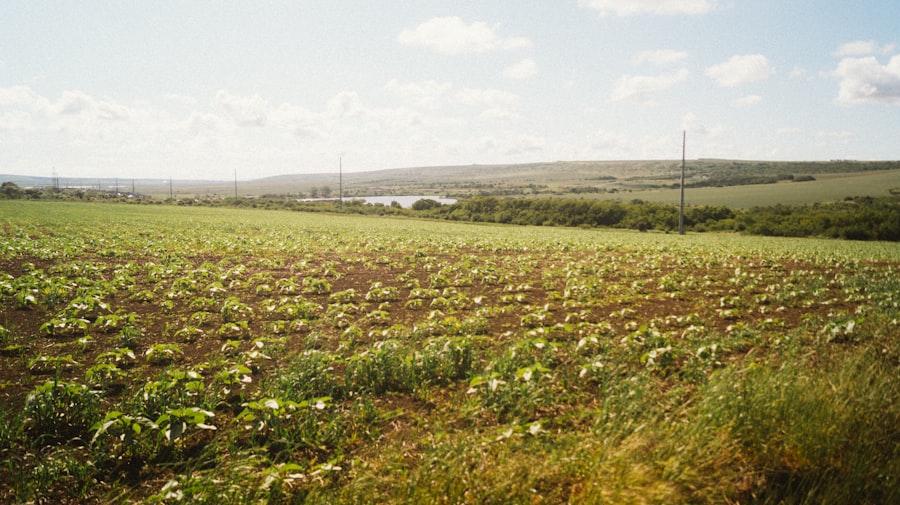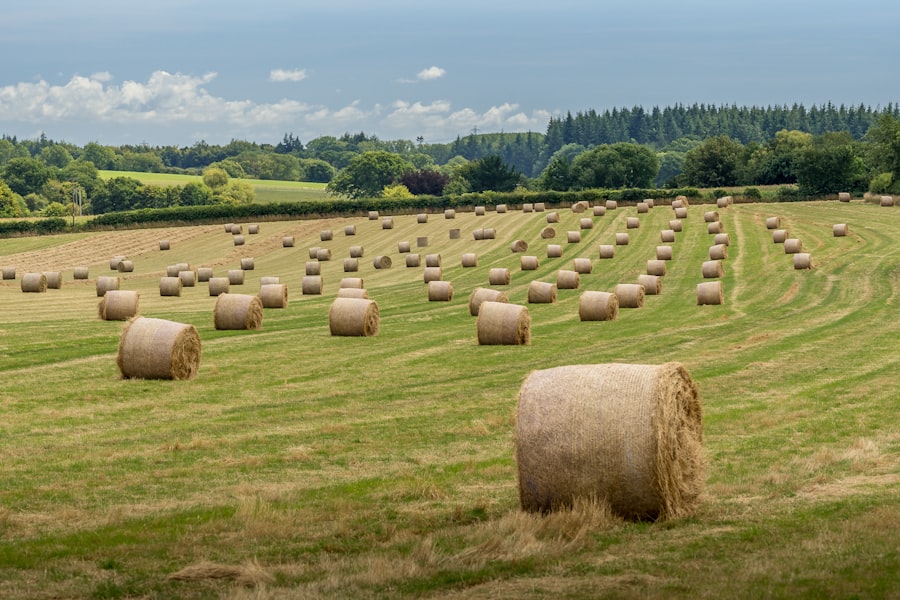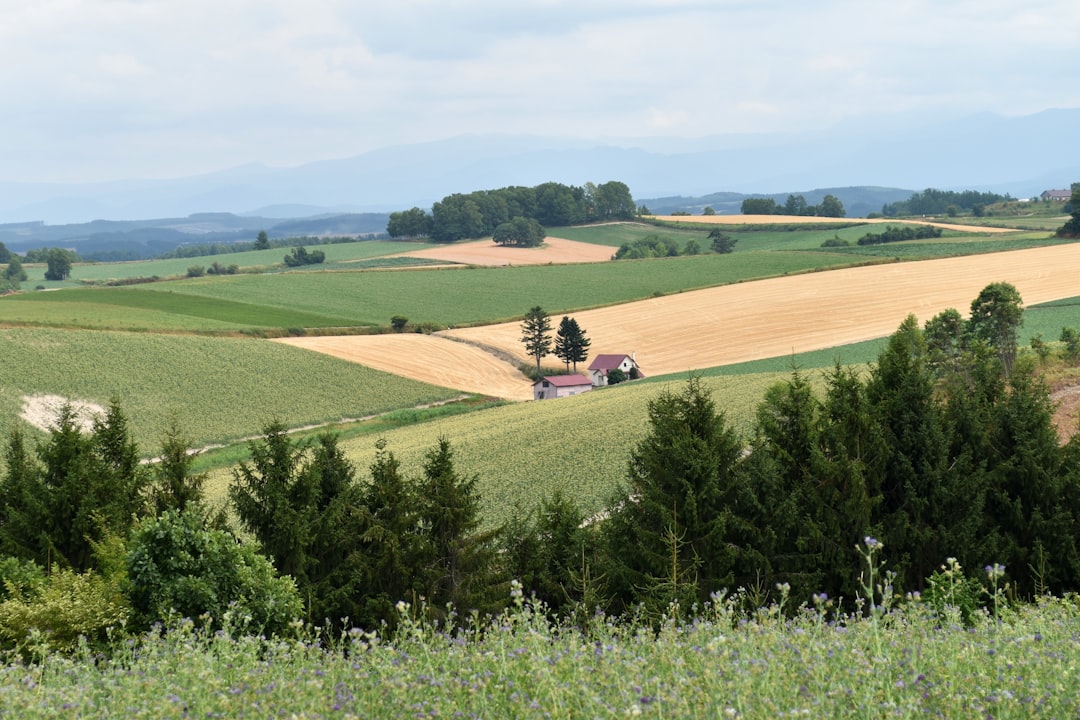In recent years, Wall Street has increasingly turned its gaze toward farmland as a viable investment opportunity. This shift can be attributed to a combination of factors, including the growing demand for food, the stability of agricultural assets, and the potential for long-term returns. As global populations continue to rise, the need for sustainable food production has never been more pressing.
The allure of farmland investments is further enhanced by the perception of agriculture as a relatively stable sector compared to the volatility often seen in traditional financial markets. With interest rates remaining low and stock market fluctuations becoming more pronounced, many investors are seeking alternative avenues to diversify their portfolios.
Farmland, with its intrinsic value and potential for appreciation, has emerged as an attractive option. This trend has led to a surge in capital flowing into agricultural land, prompting discussions about the implications of such investments on both the economy and the environment.
Key Takeaways
- Wall Street’s interest in farmland investments is on the rise, driven by the potential for long-term returns and portfolio diversification.
- Investing in farmland offers benefits such as stable income, inflation protection, and potential for capital appreciation, but it also comes with risks including weather-related events and market volatility.
- Wall Street’s investment in farmland can impact agriculture by increasing consolidation, changing farming practices, and influencing land values and rental rates.
- Institutional investors play a significant role in farmland investments, bringing capital, expertise, and professional management to the sector.
- Wall Street’s farmland investments can have both positive and negative impacts on local communities, affecting land access, food security, and environmental sustainability.
The Benefits and Risks of Investing in Farmland
Investing in farmland presents a unique set of benefits that appeal to a wide range of investors. One of the primary advantages is the potential for steady income through rental agreements with farmers who cultivate the land. This income stream can provide a reliable return on investment, particularly in times of economic uncertainty.
Additionally, farmland has historically appreciated in value over the long term, making it an attractive option for those looking to build wealth over time. The tangible nature of land also offers a sense of security that intangible assets cannot provide. However, investing in farmland is not without its risks.
Agricultural markets can be influenced by a variety of factors, including weather conditions, commodity prices, and changes in government policy. These variables can lead to fluctuations in income and land value, posing challenges for investors. Furthermore, the increasing consolidation within the agricultural sector may limit opportunities for smaller investors to participate meaningfully in this market.
As Wall Street continues to invest heavily in farmland, concerns about market saturation and the potential for speculative bubbles have also emerged.
How Wall Street’s Investment in Farmland Impacts Agriculture

The influx of Wall Street capital into farmland has significant implications for the agricultural sector as a whole. On one hand, increased investment can lead to improved infrastructure and technology adoption on farms, enhancing productivity and efficiency. Institutional investors often bring expertise and resources that can help farmers optimize their operations, leading to higher yields and better sustainability practices.
This infusion of capital can also support research and development initiatives aimed at addressing pressing agricultural challenges such as climate change and food security. Conversely, the growing presence of Wall Street in agriculture raises concerns about the potential commodification of farmland. As financial institutions prioritize short-term returns, there is a risk that they may prioritize profit over sustainable farming practices.
This could lead to practices that prioritize high-yield crops at the expense of biodiversity and soil health. Additionally, the focus on maximizing returns may drive up land prices, making it increasingly difficult for small farmers to compete or acquire land. The balance between financial interests and agricultural sustainability remains a critical point of contention as Wall Street continues to invest in this sector.
The Role of Institutional Investors in Farmland Investments
| Metrics | Data |
|---|---|
| Total Farmland Investments | USD 32.4 billion |
| Percentage of Institutional Investors | 67% |
| Top Institutional Investors | CalPERS, TIAA, AP2 |
| Investment Strategy | Long-term, sustainable |
Institutional investors play a pivotal role in shaping the landscape of farmland investments. These entities, which include pension funds, insurance companies, and endowments, have significant capital at their disposal and are increasingly looking to diversify their portfolios with alternative assets like farmland. Their involvement often brings a level of professionalism and strategic planning that can benefit agricultural operations.
By leveraging their financial expertise, institutional investors can identify promising opportunities and implement best practices that enhance farm productivity. Moreover, institutional investors often seek to align their investments with environmental, social, and governance (ESG) criteria. This alignment can lead to more sustainable farming practices and greater accountability within the agricultural sector.
However, the motivations of institutional investors can vary widely; while some may genuinely prioritize sustainability, others may focus primarily on financial returns. This divergence raises questions about the long-term impact of institutional investment on farming practices and rural communities.
The Impact of Wall Street’s Farmland Investments on Local Communities
The impact of Wall Street’s investments in farmland extends beyond financial metrics; it significantly affects local communities as well. On one hand, increased investment can lead to job creation and economic development in rural areas. As farms expand or modernize with new technologies funded by institutional capital, they may require additional labor and services, benefiting local economies.
Furthermore, improved agricultural practices can enhance food security and access to fresh produce within these communities. On the other hand, there are concerns about the displacement of local farmers and the erosion of community ties. As large institutional investors acquire significant tracts of land, smaller farmers may find it increasingly difficult to compete or maintain their operations.
This trend can lead to a concentration of land ownership that undermines local agricultural traditions and reduces community resilience. The challenge lies in finding a balance between attracting investment for growth while ensuring that local farmers and communities are not left behind.
The Ethical and Environmental Considerations of Wall Street’s Farmland Investments

The ethical implications of Wall Street’s involvement in farmland investments are complex and multifaceted. One major concern is the potential for prioritizing profit over ethical farming practices. As financial institutions seek to maximize returns, there is a risk that they may overlook important environmental considerations such as soil health, water usage, and biodiversity conservation.
This could lead to practices that are detrimental to both the environment and local communities. Additionally, the environmental impact of large-scale farming operations funded by Wall Street investments cannot be ignored. Intensive farming practices often result in soil degradation, increased pesticide use, and water depletion—all issues that have long-term consequences for ecosystems and human health.
As such, it is crucial for investors to adopt responsible investment strategies that prioritize sustainability alongside profitability. Engaging with local stakeholders and adhering to ethical farming standards can help mitigate some of these concerns.
The Potential for Farmland Investments to Diversify Investment Portfolios
Farmland investments offer a unique opportunity for diversification within investment portfolios. Unlike traditional assets such as stocks and bonds, farmland tends to have a low correlation with market fluctuations, making it an attractive hedge against economic downturns. Investors seeking stability may find that farmland provides a reliable source of income through rental agreements or crop sales while also appreciating in value over time.
Moreover, as global demand for food continues to rise due to population growth and changing dietary preferences, farmland investments are poised to benefit from this trend. Investors who recognize the long-term potential of agricultural assets may find themselves well-positioned to capitalize on emerging opportunities within this sector. However, it is essential for investors to conduct thorough due diligence and understand the specific risks associated with farmland investments before committing capital.
The Challenges of Accessing Farmland Investments for Individual Investors
While farmland investments present enticing opportunities, individual investors often face significant barriers when attempting to access this market. High entry costs associated with purchasing agricultural land can be prohibitive for many individuals. Additionally, the complexities involved in managing farmland—such as understanding agricultural practices and navigating regulatory frameworks—can deter potential investors.
Furthermore, many institutional investors dominate the farmland market, making it challenging for individual investors to compete effectively. This concentration of ownership can lead to inflated land prices and reduced availability of affordable options for smaller investors. As a result, innovative solutions such as crowdfunding platforms or real estate investment trusts (REITs) focused on agriculture may emerge as viable alternatives for individuals seeking exposure to farmland investments without requiring substantial capital.
The Global Implications of Wall Street’s Farmland Investments
The global implications of Wall Street’s investments in farmland extend far beyond national borders. As financial institutions seek agricultural opportunities worldwide, they often engage in land acquisitions in developing countries where land is more affordable but where regulatory frameworks may be less stringent. This trend raises concerns about land grabbing—where large investors acquire land at the expense of local communities who rely on it for their livelihoods.
Moreover, these investments can exacerbate existing inequalities within global food systems. When foreign entities control significant portions of agricultural land in developing nations, they may prioritize export-oriented crops over local food production, undermining food sovereignty and security for local populations.
The Future of Wall Street’s Involvement in Farmland Investments
Looking ahead, Wall Street’s involvement in farmland investments is likely to continue evolving as market dynamics shift and new challenges arise. As climate change impacts agricultural productivity and food security becomes an increasingly pressing issue, investors may seek innovative solutions that align profitability with sustainability goals. This could lead to greater collaboration between financial institutions and agricultural stakeholders focused on developing resilient farming practices.
Additionally, advancements in technology—such as precision agriculture and data analytics—may further enhance investment opportunities within the sector. Investors who embrace these innovations could gain a competitive edge while contributing positively to sustainable agriculture practices. However, navigating regulatory landscapes and addressing ethical considerations will remain critical as Wall Street continues its journey into farmland investments.
Regulatory and Policy Considerations for Wall Street’s Farmland Investments
As Wall Street’s interest in farmland grows, so too does the need for robust regulatory frameworks that govern these investments. Policymakers must consider how best to balance attracting investment with protecting local communities and ensuring sustainable agricultural practices. Regulations should address issues such as land ownership concentration, environmental impacts, and fair treatment of local farmers.
Furthermore, transparency is essential in fostering trust between investors and communities affected by farmland acquisitions. Clear guidelines regarding reporting requirements and stakeholder engagement can help mitigate potential conflicts arising from these investments. By establishing comprehensive policies that prioritize both economic growth and social responsibility, regulators can create an environment conducive to sustainable farmland investments that benefit all parties involved.
In conclusion, Wall Street’s increasing interest in farmland investments presents both opportunities and challenges across various dimensions—from economic growth to ethical considerations. As this trend continues to unfold, stakeholders must navigate complex dynamics while striving for sustainable solutions that benefit both investors and local communities alike.
In recent years, Wall Street’s interest in farmland investment has surged, driven by the promise of stable returns and the growing demand for food production. This trend is part of a broader movement where institutional investors are increasingly viewing farmland as a valuable asset class. For a deeper understanding of this phenomenon, you can explore a related article that delves into the intricacies of farmland investment and its implications for both investors and the agricultural sector. To read more about this topic, visit this article on How Wealth Grows.
WATCH THIS! 🫣Why Wall Street Is Buying Up America’s Farmland (And Why It Should Terrify You)
FAQs
What is farmland investment by Wall Street?
Farmland investment by Wall Street refers to the practice of large financial institutions and investment firms purchasing agricultural land as an asset for their investment portfolios. This can involve direct ownership of farmland or investment in agricultural real estate investment trusts (REITs) and other agricultural funds.
Why is Wall Street interested in farmland investment?
Wall Street is interested in farmland investment for several reasons. Farmland is considered a tangible asset with the potential for long-term appreciation, and it can provide a hedge against inflation. Additionally, the growing global demand for food and agricultural products makes farmland an attractive investment opportunity.
How does farmland investment by Wall Street impact the agricultural industry?
Farmland investment by Wall Street can impact the agricultural industry in various ways. It can lead to consolidation of farmland ownership, changes in farming practices, and increased competition for land among farmers. Additionally, it can affect local communities and rural economies, as well as the availability of farmland for new and existing farmers.
What are the potential benefits of farmland investment by Wall Street?
Potential benefits of farmland investment by Wall Street include portfolio diversification, potential for long-term capital appreciation, and income generation through leasing the land to farmers. It can also provide investors with exposure to the agricultural sector and the potential for sustainable and socially responsible investment opportunities.
What are the potential risks of farmland investment by Wall Street?
Potential risks of farmland investment by Wall Street include exposure to fluctuations in commodity prices, environmental and regulatory risks, and the challenges of managing and leasing agricultural land. Additionally, there may be concerns about the impact of large-scale institutional investment on local farming communities and the environment.
